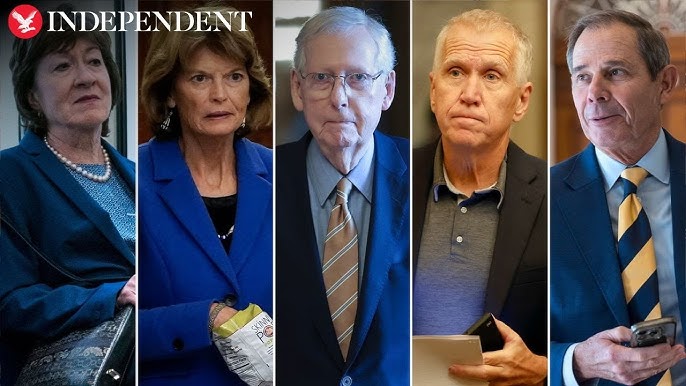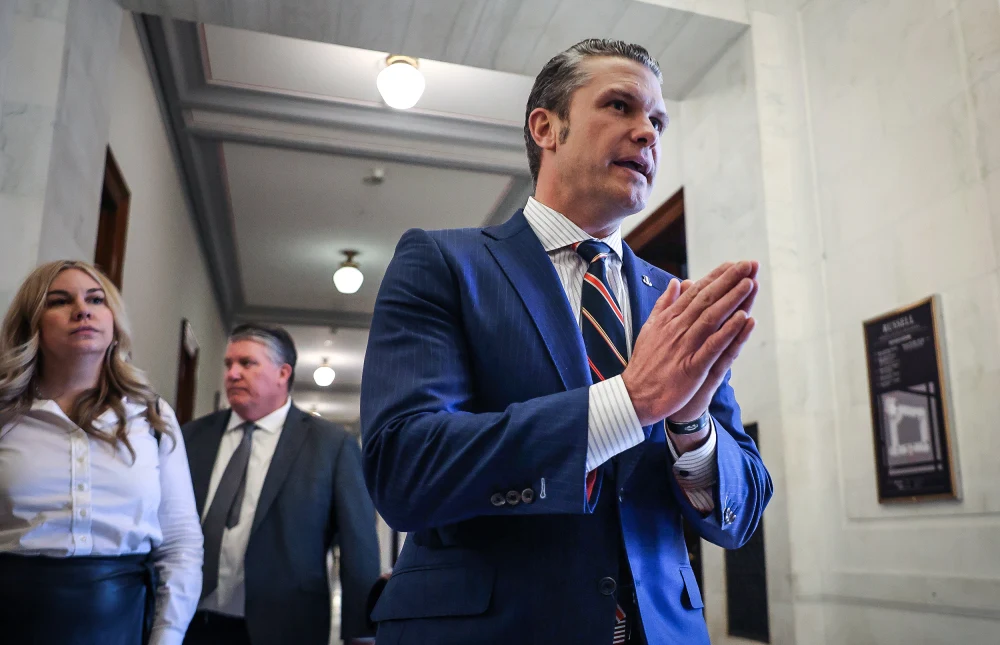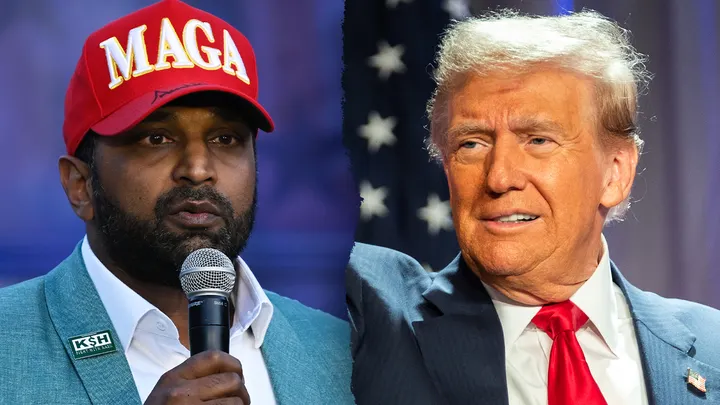Now Reading: The 5 GOP Senators Who Could Block Trump’s Agenda and Nominees
-
01
The 5 GOP Senators Who Could Block Trump’s Agenda and Nominees
The 5 GOP Senators Who Could Block Trump’s Agenda and Nominees

As President-elect Donald Trump prepares to take office, his ambitious plans to fill key government roles and push through his legislative agenda face an unexpected challenge: potential resistance from within his own party. While Republicans hold a slim 53-seat majority in the Senate, a handful of GOP senators have signaled they may not march in lockstep with Trump, especially on his most controversial nominees.

Here are the five Republican senators who could complicate Trump’s plans:
1. Susan Collins (Maine)
Known for her independent streak, Senator Susan Collins has often bucked her party’s leadership. She voted to convict Trump in his second impeachment trial and has opposed some of his past Supreme Court picks. Now, as chair of the Senate Appropriations Committee, Collins wields significant influence over funding decisions. Her moderate stance and willingness to cross the aisle could make her a critical swing vote on Trump’s more polarizing nominees.
2. Lisa Murkowski (Alaska)
Senator Lisa Murkowski has long been a thorn in Trump’s side. A vocal critic, she supported Nikki Haley in the GOP primary and has expressed skepticism about some of Trump’s appointees, including Robert F. Kennedy Jr. for a cabinet position. Alaska’s ranked-choice voting system gives her insulation from MAGA-aligned challengers, allowing her to vote her conscience without fear of retribution from the far-right.
3. John Curtis (Utah)
Stepping into the seat vacated by Mitt Romney, Senator John Curtis represents a continuation of Romney’s moderate, bipartisan approach. Curtis has worked across the aisle on issues like climate policy and marriage equality, signaling a willingness to challenge Trump’s agenda if it conflicts with his principles. His independence makes him another potential obstacle for Trump’s nominees.
4. Mitch McConnell (Kentucky)
Though no longer the Senate GOP leader, Senator Mitch McConnell remains a powerful figure. With a focus on Ukraine aid and defense spending, McConnell has shown little interest in rubber-stamping Trump’s more controversial choices. His ability to rally moderates and forge alliances could serve as a counterbalance to Trump’s influence in the Senate.
5. Thom Tillis (North Carolina)
Representing a swing state, Senator Thom Tillis has often found himself navigating between Trump’s base and moderate voters. Tillis has already voiced concerns about some of Trump’s nominees, drawing ire from MAGA loyalists. Facing re-election in 2026, he may prioritize bipartisan credibility over full allegiance to Trump’s agenda.
Key Nominees Under Scrutiny
Trump’s slate of nominees includes several figures likely to spark fierce debate:
- Jay Bhattacharya (NIH): Known for his controversial views on public health during the COVID-19 pandemic.
- Marty Makary (FDA): A vocal critic of pandemic policies, drawing praise and skepticism.
- Glen Weldon (CDC): A libertarian-leaning appointee with unconventional ideas for health policy.
These picks, along with others, have already drawn fire from Democrats and some Republicans, setting the stage for contentious confirmation battles.
What’s at Stake?
Trump’s ability to enact his agenda depends heavily on Senate cooperation. With a slim majority, even a small group of dissenters could derail key appointments and legislative priorities. The resistance from within the GOP highlights a growing divide between Trump loyalists and the party’s moderate wing, signaling potential challenges for his presidency.
Will these senators stand firm against Trump’s more controversial picks, or will party unity prevail? Share your thoughts in the comments below!
Keywords/Tags:
Trump administration, GOP senators, Susan Collins, Lisa Murkowski, Mitch McConnell, Thom Tillis, John Curtis, Senate majority, Trump Cabinet, controversial nominees, Jay Bhattacharya, Marty Makary, Glen Weldon, bipartisan politics, Trump agenda, US politics.


















